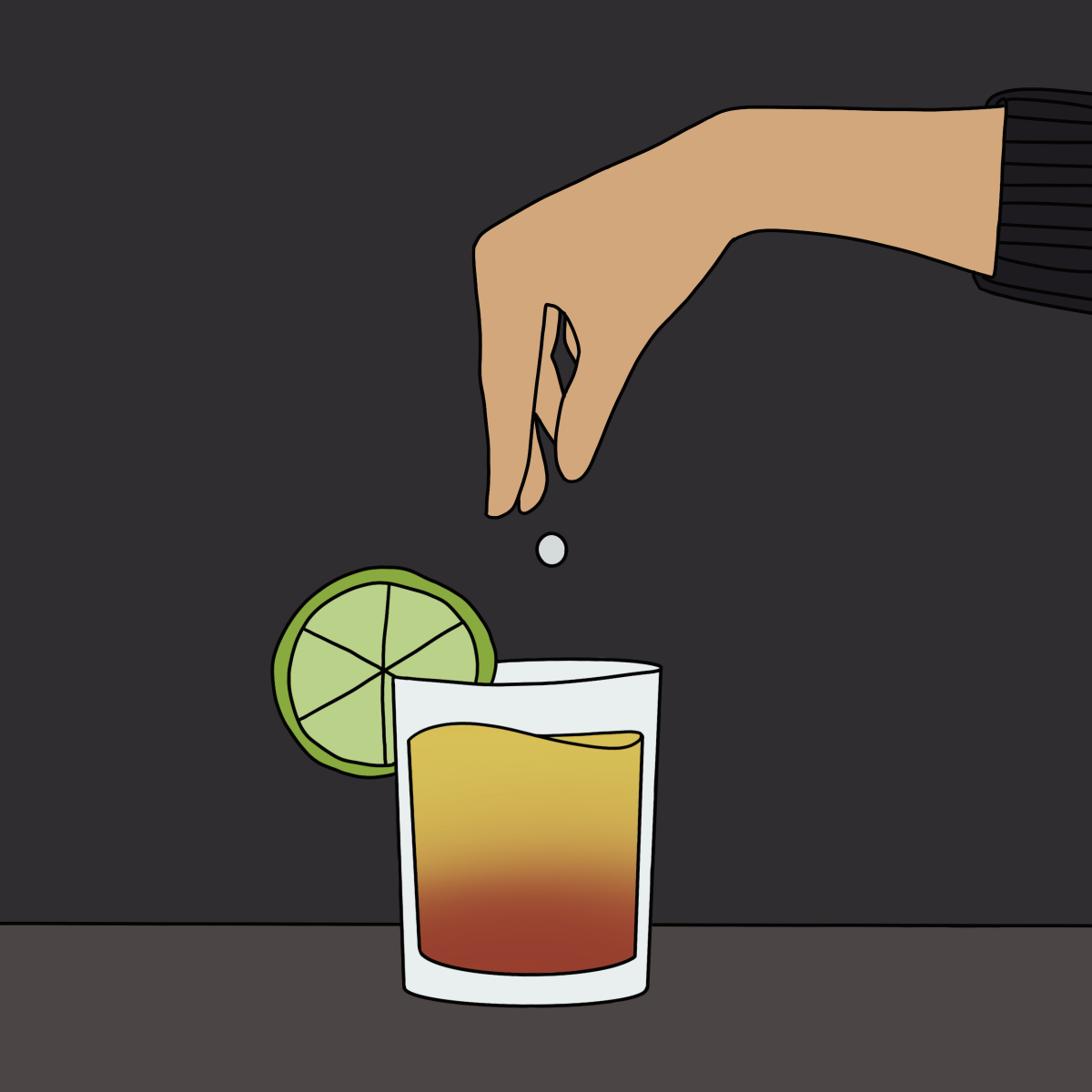Your head is pounding, and you still can’t remember how you got home last night. Your last memory is of some guy you don’t know tapping you on the shoulder, trying to get your attention. You’ve blacked out from drinking before, but you barely drank last night. You don’t understand why you have no recollection of your night out. As you sluggishly try to piece your memories together, the uneasy realization that you may have been slipped a date rape drug churns in your mind.
Date rape drugs like rohypnol (roofies), GHB (liquid ecstasy) and ketamine are sometimes called “club drugs” because they are typically slipped into alcoholic drinks at clubs and bars.
On college campuses, these drugs are used more frequently than most realize. Eight percent of American college students surveyed by University of South Carolina researchers thought they had been given a spiked drink at some point in time. The exact frequency of these druggings can be difficult to determine, as many victims are unaware that date rape drugs can be detected by a urine or hair test, and people often do not report or remember the attack.
However, confusion and amnesia are not the most dangerous effects of a spiked drink. Rohypnol slows down the central nervous system, leading to slowed reaction time and feelings of drowsiness. It takes effect within 15-20 minutes of use, and the effects can last up to six hours. The state of confusion and impaired judgement of the victim make them more susceptible to sexual assault and rape. Victims’ amnesia might prevent them from remembering the assault, potentially protecting the attacker from punishment. U.S. Bureau of Justice Statistics report that less than a third of sexual assault victims report their attackers to the police, and this number gets even smaller when victims have been unknowingly drugged.
Coming into college at LSU, I knew the basics of protecting yourself from getting “roofied:” Watch your drinks, stay away from strangers and be aware of your surroundings.
But these simple precautions did not prepare me for the reality of this danger.
No matter how closely you watch your drink, no matter how careful you are, you can still be a target for attackers. I had no idea how often college students experienced drink spiking, and now it has happened to some of my closest friends. The morning after being drugged, they all asked the same question: “How did we not notice anything was wrong?”
Tigerland in Baton Rouge is a prominent target for drink spiking, due to the high concentration of unsuspecting college students, which gives students even more reason to be more careful on nights out. Raising awareness is the first step to protect potential victims. Making sure people know how to report attacks, where to go to get tested and how to take care of themselves after being drugged can change the way students protect themselves from attackers.
There are small things you can do that make a big difference:
Stay together.
Attackers are looking for easy targets. If you are surrounded by a group of people, they are less likely to slip something in your cup.
Have a designated sober friend.
Not only should your friend be sober, but they need to be aware of how you act when you have been drinking, so that they can recognize when you are displaying symptoms of a date rape drug rather than just drunkenness.
Listen to your friends if you are drinking and they are not.
If your friends are telling you it is time to leave, do not argue. They may have noticed something you have not.
Pay attention to your body.
Know your limits and pay attention to how your body reacts after each drink. If you know it usually takes you a few drinks to feel a buzz, but you are stumbling after the first, it is most likely time to leave.
Cover your drinks and do not let them leave your sight.
Known as “the claw” by some, holding your hand over the lid of your drink may seem silly, but uncovering it or looking away for even a second can give an attacker the opportunity to spike it.
Get tested.
If you think you may have been drugged, go to the Student Health Center to get tested as soon as you can.
Report it.
If you can establish the fact that someone slipped something in your drink, report it to LSUPD and provide as many details as possible.
The university should do a better job providing information about drink spiking precautions to students. Not many students know you can get tested on campus, and some aren’t aware of symptoms or effects of being drugged. Because this is a such a prominent issue on campus, the university should recognize the importance of teaching preventative measures, as well as retrospective care for victims.
Mia Coco is a 19-year-old political communication student from Alexandria.
Opinion: University must take drink spiking more seriously, educate students
By Mia Coco
March 5, 2022
Spiked drinks cartoon





